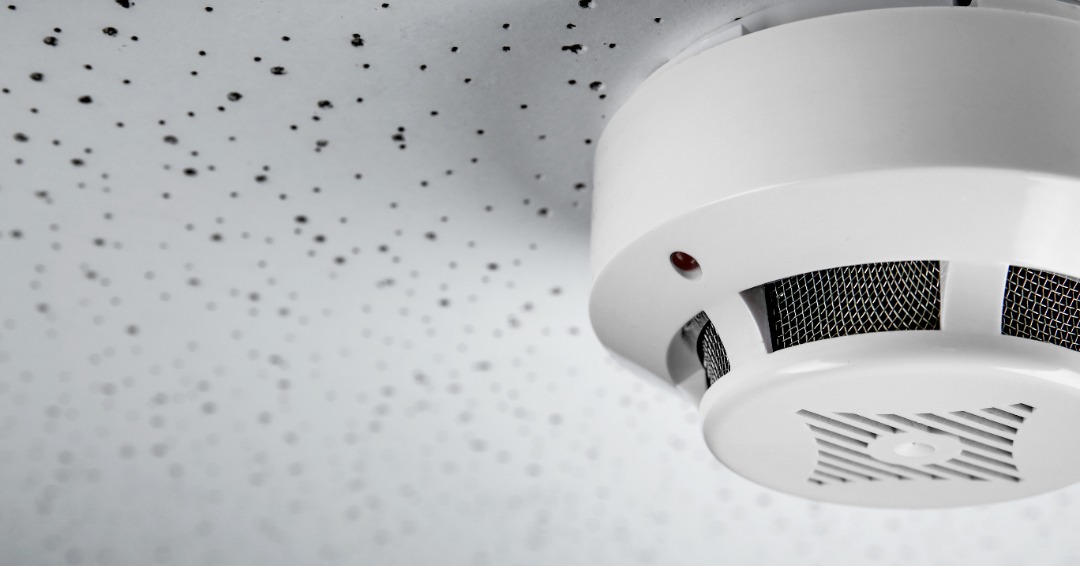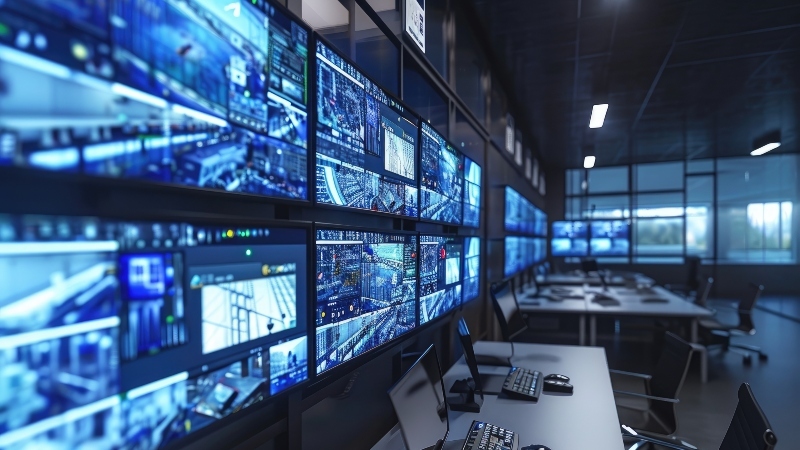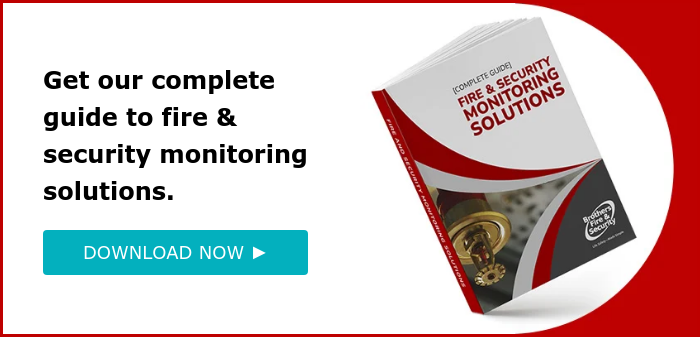3 min read
Budgeting Tips for Inspections of Fire Monitoring and Security Systems
Brothers Fire & Security : August 24, 2022

If you’re responsible for multi-unit housing or any large building that has a fire alarm or security alarm system, you need to know how to plan for inspections and incorporate the expected costs into your annual budget. Here is some help on how to do that.
What Needs to Be Inspected and How Often
Let’s start on the fire side. Fire alarms and fire systems need annual tests and inspections. This includes inspecting the sprinklers, piping, valve assemblies, fire pump, standpipe, extinguishers, and emergency lights. Here is more detail on the specific inspections required for each part of your fire system and all the devices connected to the fire alarm panel.
Dry Pipe
If you have a dry pipe sprinkler system that doesn’t fill with water until a fire happens, and then the water flows to the sprinkler heads, you need to have that tested every 3 years. The purpose of this is to test a full trip of the system, making sure water can reach the sprinklers within 30 seconds. The system must also be filled with water and let sit for two hours to test the system’s integrity.
Standpipe
Standpipes that a hose can be connected to in case of a fire are supposed to be inspected every 5 years. The test requires achieving 200 psi of pressure for two hours.
Sprinklers
An internal inspection, which includes opening a flushing connection on one end of the main and removing a sprinkler head near the end of a branch line, is to be done every 5 years. The sprinkler heads themselves require additional inspections less frequently (the timing depends on the type of system you have).
- A sprinkler system with dry heads must be inspected every 10 years.
- Quick response (QR) sprinkler heads must be inspected every 20 years.
- Standard response sprinkler heads must be tested after 50 years.
Kitchen Hoods
Restaurants or other facilities with kitchen hoods that have fire suppression systems must be inspected every six months. It’s a best practice to have the owner visually inspect a kitchen hood monthly as well. You’re looking for grease, damaged extinguishing lines, damaged nozzle caps, or anything out of the ordinary. A little preventive maintenance and regular inspections will make your building safer and could save you significant money (an uncontained fire in a restaurant can do tens of thousands of dollars worth of damage very quickly).
Fire Extinguishers
Fire extinguishers need to be visually inspected on a monthly basis. Check to make sure it’s there, it isn’t damaged, it’s fully charged and operational. A professional fire protection company must do a maintenance inspection every year. An internal maintenance inspection (along with recharging the extinguisher) must be completed every 6 years for any extinguisher, whether it’s water, carbon dioxide, wet chemical, or any other extinguisher, and a hydrostatic test must be conducted every 12 years for any extinguisher.
Get Help Keeping Track of Inspection Requirements
This may feel like a lot to keep track of. Brothers Fire & Security created a handy and simple inspection scheduling form you can use to make it easier. We help customers fill out the form and, to make it even easier, we also keep track of when our customers need to have their required inspections done. We call a month ahead, and schedule for when it's convenient and bundle multiple services, thus interruption is minimal.
Here are some other ways to take the stress and worry out of planning and budgeting for inspections.
Save Slowly
It's always best to plan for obtalesence. Figure out what a new fire or alarm system will cost and put a little money into an account each month. That way, when you have to spend it on either a repair, maintenance, or a replacement system, the money will already be there. A good rule of thumb is to start to save 1% of the cost of a system each month (and up to 5% if the system is already pretty old).
Life Safety Month
If you operate multi-unit housing, designating a Life Safety Month is a good idea to get all of your inspections done. Let residents know that your life safety vendor will be on site and why the alarms will be going off. Alert people ahead of time and let them practice their exit plans.
Consolidate Services
Consider consolidating to just one vendor if you have separate companies monitoring your fire and security systems. This can save you money and cut down on the number of inspectors visiting your property each year.
If you want to have a conversation about how to consolidate your monitoring needs, please contact us, and we’d be happy to help you.
Subscribe to our blog!

Making the Switch: Vendor Transition Guide
Switching fire and security vendors feels risky. Even if your current provider isn't meeting your needs, the thought of transitioning systems and...

What to Do When Your Security Vendor Goes Silent
Your fire alarm shows a trouble signal. Last week's sprinkler inspection never happened, and despite three calls and multiple messages, your vendor...

















